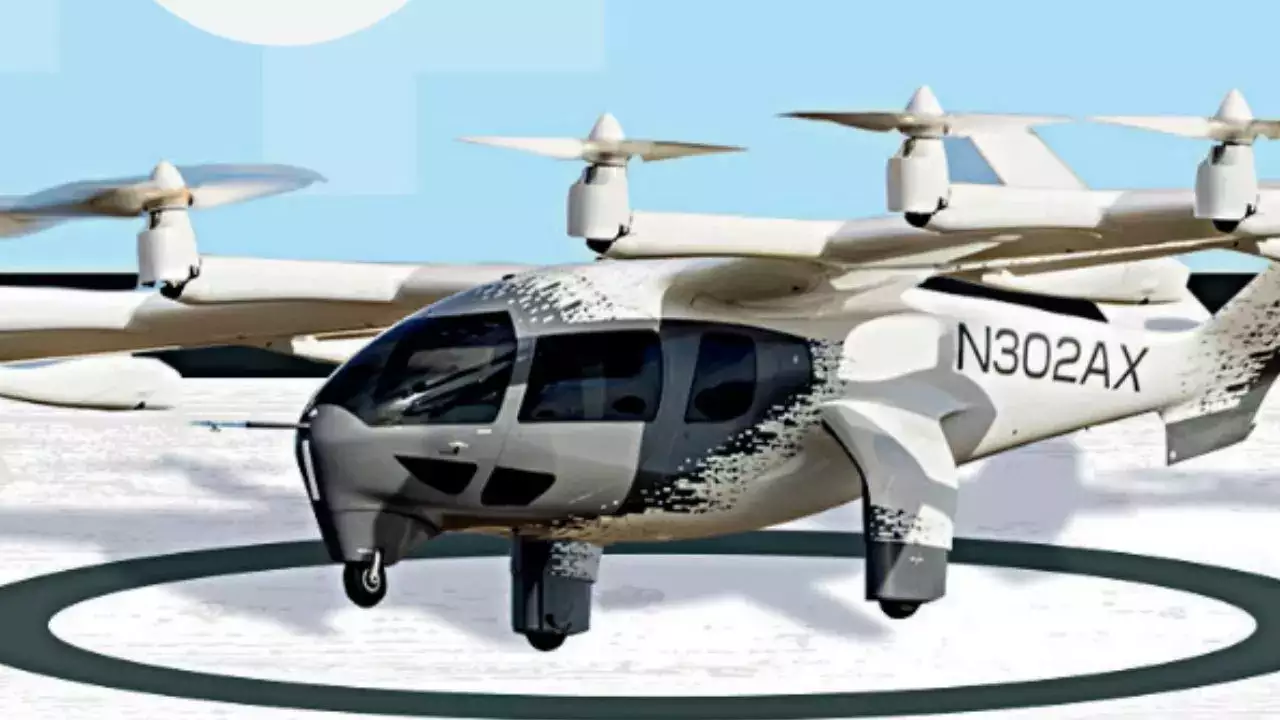
Be it eVTOL (electric vertical take-off and landing) startups BluJ Aerospace and AirArk, or dronetech startups Marut Drones and Drogo Drones, all are working on bringing autonomous or piloted flying taxis to India. Chennai-based The ePlane Company and Bengaluru-based Leap Aeronautics too are in the fray.
If they have their way, by 2030 you could be zipping through the city skies, covering in minutes a distance that could typically take hours in cities these days, at anything from double the price of an Uber or Ola ride to something as expensive as a chopper or flight ride.
Both bootstrapped AirArk, which is trying to raise funding from funders in West Asia, and BluJ, backed by the likes of Zerodha founders' Rainmatter Foundation, Endiya Partners and IdeaSpring Capital, have developed initial prototypes capable of moving cargo and are working on passenger eVTOLs.
While BluJ is developing a piloted 10-seater eVTOL capable of flying 700-800 km, AirArk is planning autonomous three and five-seater versions that can fly a max distance of 300km. Both are working on eVTOL's powered by Hydrogen fuel cell for propulsion and Lithium ferro phosphate batteries for lift-off.
But players like Marut and Drogo see no sense in reinventing the wheel and are taking the collaboration route for exclusive rights to India market with local manufacturing.
Working with civil aviation ministry for eVTOL air taxis in Hyd: Marut Drones
First-off-the-block could be Marut Drones that plans to bring Japanese partner SkyDrive's eVTOL, undergoing testing in Japan, to India as early as next year for testing.
"We are trying to bring one SkyDrive eVTOL to India and plan to test it round the ORR, say from airport to Hi-Tec City or Secunderabad. We can also use airports in Begumpet or Nadirgul or smaller ones across the state as ports for eVTOLs," says Marut Drones founder Prem Kumar Vislawath.
"It weighs half of a helicopter, has one-third its noise levels and will be priced at one-third. Initially we are looking at a Rs 150-200 per km pricing with a fixed point-to-point travel as it will be targeted at tourism, disaster relief or even medical emergencies," Vislawath adds.
Drogo is talking to three international eVTOL players.
"Once we narrow down on a partner, beta testing will take 9-10 months and another year for DGCA approval. We are looking at tourism, urban mobility and medical transport," says Sreedhar Dannapaneni, co-founder, Drogo Drones.
AirArk, which already has a single pilot prototype, expects its under development eVTOL to ferry passengers at double the price of an Uber or Ola but flying 500-1000 metres above the ground at max speeds of 260km per hour. "For instance, if Electronic City to Bengaluru airport takes two hours by road, with AirArk you would be able to travel in 10-12 minutes. We have calculated pricing based on Bengaluru and Delhi road maps and are working on Hyderabad," explains AirArk co-founder Bahroon Sajeel.
"The passenger eVTOL will have a fixed wing configuration with multiple engines, controllers and batteries for safety. While phase-1 is off-the-shelf effort with imported critical parts like propellors, motors and flight controllers, phase-2 we will try to develop everything in-house," says Sajeel adding they first plan launch in Dubai and Singapore by 2026 after getting FAA and EASA certification.
BluJ's co-founder & CTO Utham Kumar Dharmapuri says they already have an autonomous cargo prototype weighing 400kg with a 100kg load capacity under testing at Nadargul airport and have prepared a concept design for passenger eVTOL with 20-meter wingspan, 8-10 metre length and capacity to carry one pilot and 10 passengers.
"We are looking at being a regional player with an inter-city play and hope to have a flying passenger prototype by 2028. By 2030 we should be flying our passenger eVTOLs in India," adds Dharmapuri.
But the biggest hurdle is the lack of an eVTOL policy.
"We are working with the Union civil aviation ministry for that," explains Vislawath.
Disclaimer: The copyright of this article belongs to the original author. Reposting this article is solely for the purpose of information dissemination and does not constitute any investment advice. If there is any infringement, please contact us immediately. We will make corrections or deletions as necessary. Thank you.





